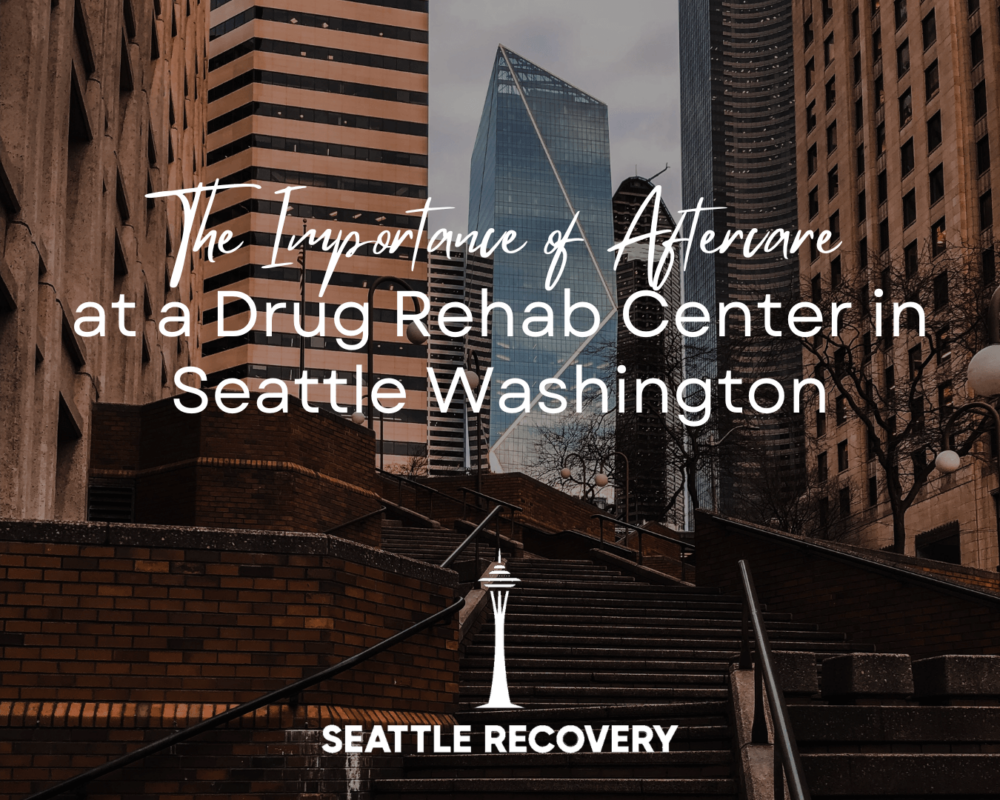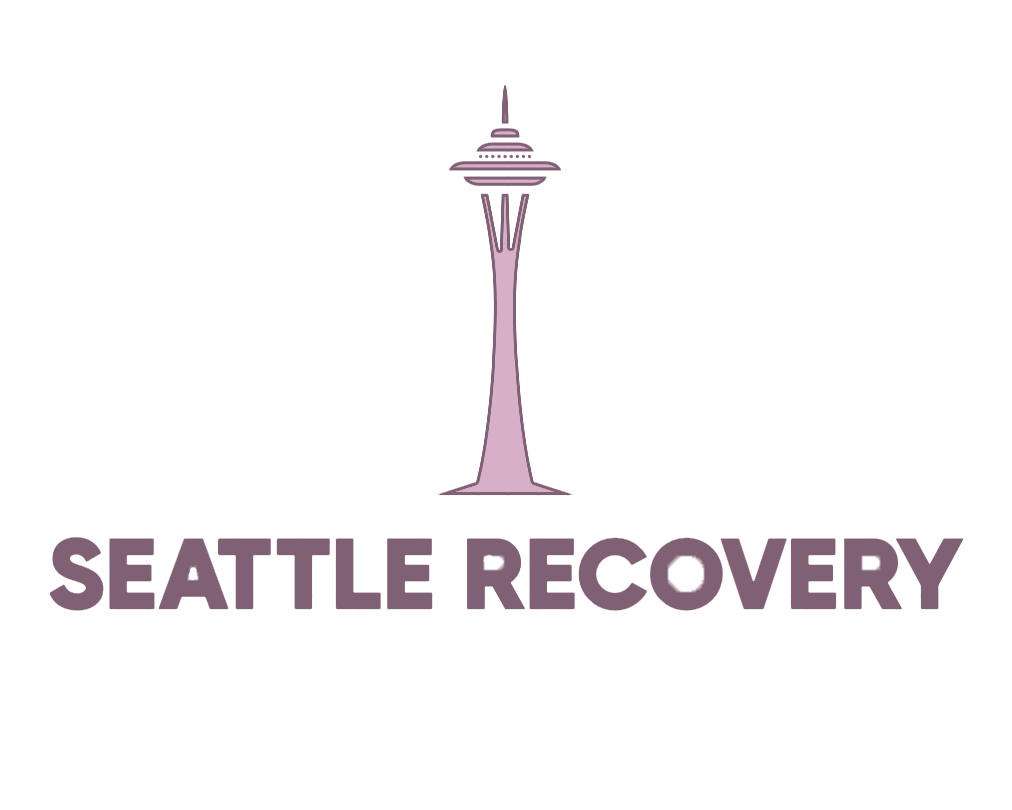Addiction recovery doesn’t end the day you leave a treatment program. For many, leaving a structured environment means facing new challenges without the round-the-clock support they once had. That’s why aftercare is essential. At Seattle Recovery, a leading drug rehab center in Seattle Washington, we believe that aftercare is the cornerstone of a successful recovery. It’s the phase where individuals apply the skills they’ve learned in treatment to real-world situations, receive continued support, and build a solid foundation for a substance-free life.
This article explores why aftercare matters, the types of aftercare services offered at our drug rehab center in Seattle Washington, and how these services help clients overcome addiction, avoid relapse, and establish fulfilling lives.
The Role of Aftercare in Long-Term Recovery
Aftercare refers to the structured support provided after completing a primary addiction treatment program, such as those offered by a Drug Rehab Center in Seattle Washington. Addiction is a chronic disease that requires continuous management, much like diabetes or hypertension. Without a consistent, supportive framework, individuals who complete treatment often face a higher risk of relapse, especially during the first few months post-treatment.
Here’s why aftercare is so crucial to sustained recovery:
Preventing Relapse
Relapse prevention is one of the primary goals of aftercare. When individuals transition from a controlled treatment environment back into everyday life, they encounter many familiar triggers, whether it’s stress from work, relationship conflicts, or social gatherings where substances might be present. Aftercare provides support and accountability, helping individuals handle these situations without resorting to substance use.
Building a Support Network
Addiction often isolates individuals from friends, family, and community. Aftercare provides a network of peers and professionals who understand the journey and can offer emotional support and encouragement. This community connection is essential for people in recovery, as it helps them feel less alone and more motivated to continue their path toward sobriety.
Reinforcing Coping Skills
During primary treatment, individuals learn coping skills to manage cravings, handle stress, and navigate difficult emotions. However, putting these skills into practice in the “real world” can be challenging. Aftercare reinforces these coping strategies, allowing individuals to practice and refine their skills in real-life situations with the guidance of professionals.
Supporting Mental Health
Many people struggling with substance use disorders also have co-occurring mental health issues, like anxiety, depression, or PTSD. Aftercare includes continued mental health support, which is vital in managing these issues. By addressing both addiction and mental health, aftercare helps prevent clients from feeling overwhelmed and turning back to substances as a coping mechanism.
Helping with Life Transition and Stability
After treatment, individuals often face significant life changes—finding a job, mending relationships, or even managing finances. Aftercare programs provide the guidance and resources to help clients tackle these life challenges without feeling like they need to rely on substances to cope.
Seattle Recovery’s drug rehab center in Seattle Washington, offers a range of aftercare services designed to support clients through each of these aspects, ensuring they have the tools and resilience needed for lasting recovery.
Key Aftercare Programs at Seattle Recovery
At Seattle Recovery, we offer a comprehensive selection of aftercare programs tailored to meet the diverse needs of our clients. We recognize that each person’s journey is unique, so our aftercare options are flexible and customized to help them succeed in their individual path to sobriety.
1. Individual Therapy
Individual therapy is a cornerstone of aftercare. Through one-on-one counseling sessions, clients can continue working on personal issues, address new challenges as they arise, and set meaningful goals for their future. Therapy offers a safe, confidential space to explore any ongoing emotional struggles, relationship dynamics, or life transitions.
In individual therapy, therapists often use evidence-based methods like Cognitive Behavioral Therapy (CBT) and Dialectical Behavior Therapy (DBT), which help clients identify negative thought patterns and replace them with healthier ones. This continuous support helps prevent relapse by providing clients with strategies to handle stressors and emotional triggers.
2. Group Therapy and Peer Support Groups
A sense of community is essential to lasting recovery, and group therapy offers individuals a chance to connect with others who understand their struggles. Group therapy sessions at Seattle Recovery’s drug rehab center in Seattle Washington, allow clients to share their experiences, learn from others, and build relationships in a supportive environment.
We offer both traditional 12-step programs, such as Alcoholics Anonymous (AA) and Narcotics Anonymous (NA), and non-12-step alternatives like SMART Recovery, which focuses on self-empowerment and science-based techniques. Having multiple options allows clients to find a program that resonates with their personal beliefs, ensuring they stay engaged and motivated.
3. Sober Living Homes
For some clients, transitioning directly from treatment to independent living may feel overwhelming. Sober living homes provide a structured, supportive environment where individuals can adjust to a substance-free lifestyle while still having access to support systems. These homes offer routine, accountability, and peer connections that reinforce the recovery process.
Seattle Recovery partners with reputable sober living facilities across Seattle to provide clients with safe, substance-free living arrangements as they rebuild their lives. Residents in sober living homes are encouraged to find employment, attend support groups, and develop life skills, creating a smoother transition into independent life.
4. Family Therapy and Support
Addiction affects not only the individual but also their family. Family therapy is an integral part of the aftercare process because it allows family members to heal, rebuild trust, and understand how they can support their loved one’s recovery. At our drug rehab center in Seattle Washington, we emphasize family involvement, recognizing that a strong, supportive family network can significantly boost recovery outcomes.
Family therapy sessions focus on communication, boundary-setting, and conflict resolution. We also offer family support groups that provide relatives with a space to share their experiences and learn from others who are navigating similar challenges. By involving the family in aftercare, Seattle Recovery fosters a recovery-friendly environment at home, which reduces the risk of relapse.
5. Life Skills Development
Addiction can disrupt many areas of an individual’s life, including employment, finances, and personal responsibility. Our aftercare program at Seattle Recovery includes life skills workshops to help clients regain stability in these areas. Life skills development can cover a wide range of topics, such as:
- Job Search Assistance: Securing stable employment can be a challenge for individuals in recovery, particularly if they have gaps in their work history or criminal records. Our aftercare program includes resume workshops, interview coaching, and job placement assistance to help clients reenter the workforce with confidence.
- Financial Management: Financial instability is a common stressor for people in recovery, and without proper management, it can become a trigger for relapse. We offer financial planning resources, including budgeting, managing debt, and saving for the future.
- Time Management and Goal Setting: Building a structured, purpose-driven lifestyle is essential for recovery. Our workshops help clients develop routines, set achievable goals, and manage their time effectively to reduce stress and stay focused on positive activities.

The Importance of Community in Aftercare
A strong sense of community is often one of the most crucial elements in aftercare. Addiction can lead to isolation, causing individuals to lose touch with friends, family, and society. Aftercare programs provide opportunities for clients to rebuild their social networks in healthy, supportive ways.
Seattle Recovery encourages clients to engage with their community through volunteer opportunities, local sober social events, and recovery-based activities. By fostering community involvement, aftercare helps clients:
- Reduce Isolation: Loneliness can be a powerful trigger for relapse. By becoming part of a community, individuals in recovery find companionship and support that fills this void.
- Develop Positive Relationships: Building relationships with people who support sobriety is key to maintaining a substance-free lifestyle. Positive social interactions replace past relationships that may have been tied to substance use, helping clients form a network that reinforces their commitment to recovery.
- Gain a Sense of Purpose: Being part of something larger than oneself can be incredibly fulfilling. Whether through volunteering or participating in sober social events, community involvement can instill a sense of purpose and boost self-esteem.
Managing Triggers in Aftercare
Understanding and managing triggers is a vital part of aftercare at Seattle Recovery’s drug rehab center in Seattle Washington. Triggers are people, places, or emotions that prompt cravings for substances, and learning to handle them is essential for relapse prevention. Common triggers include:
- Emotional Triggers: Emotions like stress, anxiety, or even happiness can trigger the desire to use substances as a way to cope or celebrate. Aftercare programs offer emotional regulation techniques, such as mindfulness and cognitive behavioral strategies, that help individuals process their feelings in healthy ways.
- Social Triggers: Social situations, particularly those involving old friends or environments tied to substance use, can be challenging. Aftercare helps clients develop strategies for navigating these situations, from setting boundaries to practicing refusal skills.
- Environmental Triggers: Returning to the environments where substance use occurred can prompt strong cravings. Seattle Recovery’s aftercare program helps clients identify these environmental cues and provides practical strategies for avoiding or dealing with them, such as finding alternative locations or creating a supportive network in safe environments.
Addressing Co-Occurring Disorders in Aftercare
For many individuals, addiction often coexists with mental health issues. These include depression, anxiety, or PTSD. Consequently, this creates a complex web of challenges that can be difficult to navigate. At Seattle Recovery’s drug rehab center located in Seattle, Washington, we understand the intricate relationship between these issues. Moreover, we offer specialized aftercare services that address both addiction and mental health. We recognize that untreated mental health conditions can significantly increase the risk of relapse. This makes it essential to tackle both areas simultaneously for long-term recovery.
Our aftercare program is designed to provide ongoing therapy and psychiatric support. This helps clients maintain stability in their mental health. Additionally, it reinforces their commitment to sobriety. Through personalized treatment plans, we create a supportive environment. Here, individuals can explore the underlying causes of their addiction. Furthermore, they can explore their mental health struggles. This dual approach is particularly crucial for those who may rely on substances. Specifically, they use substances as a means to self-medicate their mental health symptoms.
By providing comprehensive support for both addiction and mental health issues, Seattle Recovery empowers clients. We help them not only overcome their substance use. Additionally, we help them achieve a balanced and healthier life. Our dedicated team works closely with each individual. We equip them with the tools and strategies necessary to manage their mental health effectively. Consequently, this fosters resilience and encourages lasting recovery.
Building a Fulfilling Life Beyond Substance Use
Recovery isn’t just about stopping the use of substances. Instead, it’s about building a meaningful life. This life aligns with one’s values and goals. At Seattle Recovery, our aftercare program is designed to help individuals build that fulfilling life. We offer resources and support for clients to pursue education and explore new interests. Additionally, we help them rebuild relationships. These relationships might have been damaged by addiction.
Creating a life that feels rewarding and purposeful reduces the temptation to use substances. We encourage our clients to set and pursue personal goals, whether they’re related to career advancement, education, hobbies, or family. A life filled with purpose and connection is one of the best protections against relapse.
Why Aftercare Matters at Seattle Recovery
Aftercare isn’t a single program—it’s a continuous, multi-faceted support system that helps individuals transition from the structured environment of treatment back to their everyday lives. At Seattle Recovery’s drug rehab center in Seattle Washington, we are committed to supporting our clients through this phase with compassion, expertise, and a holistic approach.
Through individual counseling, group therapy, sober living arrangements, family involvement, life skills development, and community engagement, our aftercare services provide a strong foundation for sustained sobriety. Recovery is a lifelong journey, but with the right support, it’s one filled with growth, connection, and endless potential.
If you or a loved one is ready to begin this journey, Seattle Recovery is here to guide you every step of the way. Our aftercare programs offer the ongoing support you need to build a healthy, fulfilling life free from addiction. For more information visit our website www.seattlerecovery.org or call us at (206) 231-0252.







